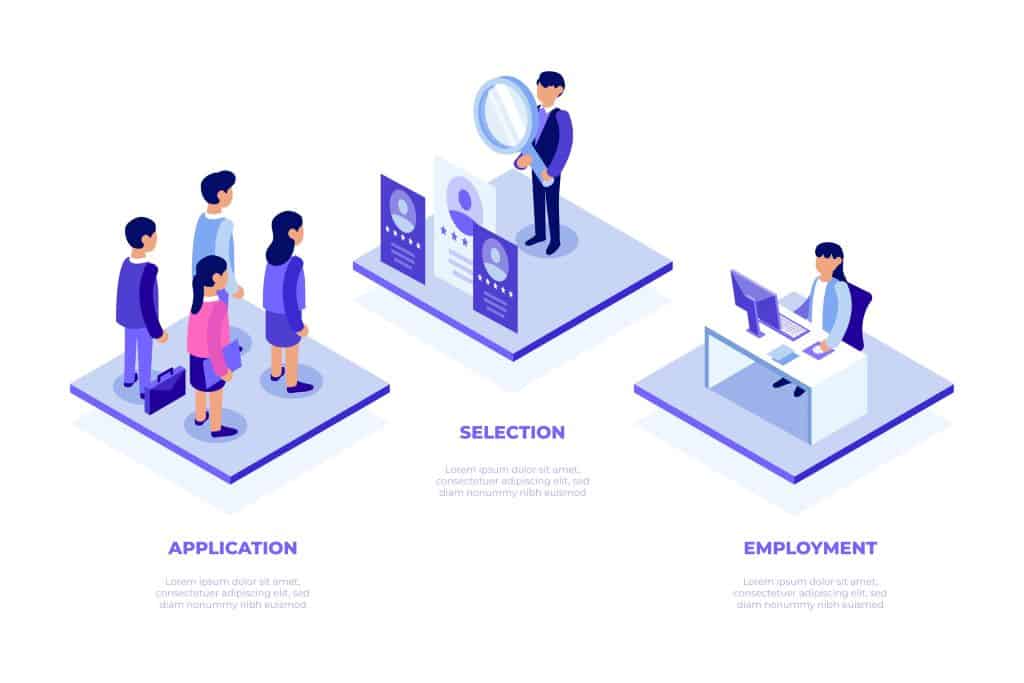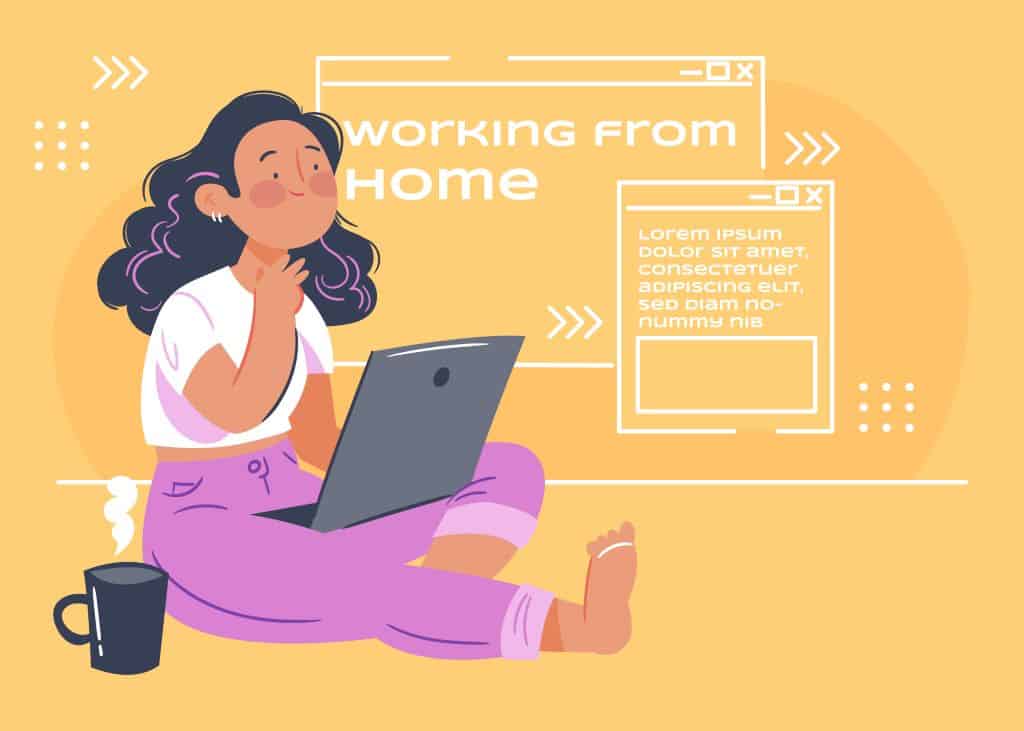Post pandemic period has seen an acute rise in employees and companies adopting remote work as a first choice. Remote Work has changed everything, from how organizations approach work-life balance to how employees communicate their productivity to the team. It benefits both the employees and the employers, however, it is still a young concept for most of them. Its concepts and working manner are yet to be understood by many before they adapt to it. This blog here will present you with the detailed concept of remote work and will clear your doubts about it.
What is Remote Work and Who are remote working employees?
Remote Work as the name suggests is a working practice that allows the working professional to work outside of their traditional working space, be it an office or a campus. These working places can be anything from an employee’s home, or private office, a co-working space, or any place outside the traditional company’s office. The basic concept behind this practice is that work productivity is just not limited to office space and the work can be done from anywhere as long as it stays within the boundary of working culture.
Try understanding this in a simple manner so that an employee instead of regularly commuting to the office for his job can execute his daily work from the comfort of his home. The office time, workload, and working manner are the same as a regular job; just the regular designated work desk changes to the bedroom, garden, balcony, or any place of the employee’s choice. This allows the employees to balance their personal life along with their professional ones as long as the professional tasks are not compromised and both can coexist peacefully.
Those who work remotely are known as remote working employees. These employees can be in their hometown, in another city, or even in another country but still can work for their organization if it permits. The location barrier is totally null and void in this scenario. Sometimes, the employees tend to be in the same city in which their company’s office is present, but they choose to work from home or the organizations permit them to work from home. This benefits both the employees and the employees in different ways.
How do organizations execute remote work?
There are several ways in which remote working can be executed by organizations. It can be done in the ways people choose to work according to their wishes.
For some organizations, going fully remote is still a difficult task. So, they choose to ask their employees to work remotely for most of the working weeks of the month but show up in the last week of the month and can resume the next month as remote work. Some prefer calling once every week or for some half of the staff works from the office and other half works from home, depending upon the duties they perform for the organization.
Some employees prefer working from the comfort of their homes while for some there is not enough privacy at home so they prefer co-working spaces. For them, co-working spaces act as a hub of productivity and connectivity offering better opportunities to be productive.
Remote working settings can be utilized for full-time jobs, freelancing opportunities, and even the entrepreneurs who have a small staff and do not want to rent office spaces for their staff. It is a perfect way of blending the employees with the company’s culture without compromising their personal space. These even expand the professional network to the worldwide community by removing the location barrier.
How is remote work beneficial for organizations?
The most important question that strikes our mind is how remote work can actually benefit organizations. Doesn’t it affect their productivity, delay their projects, or hinder their team communications? Well if you have the same thought then you are completely wrong here, remote work actually benefits organizations in a very positive way. The fully remote organizations tend to keep the budget to the lowest when it comes to those operating fully from office spaces. The remote working environment allows organizations to cut infrastructure costs and utilize it in some other fruitful departments. Hence, it is the most appropriate option for budding start-up firms to adopt the remote hiring working model and utilize the funds in building a strong base first. The same goes with the MNCs, those with a strong base can adopt remote hiring and can help their employees to have a better work-life balance.
The remote working environment also presents organizations with a diverse and wider talent pool. They can recruit employees from anywhere without worrying about the location barrier. It also helps the employees to join companies from expensive cities without worrying about shifting budgets and all.
Some of the common benefits of remote work are highlighted below:
For employees:
- Flexible Lifestyle and Better Work-Life Balance
The most common reason why employees prefer to work remotely is that it offers them a more flexible lifestyle than the office environment. It gives them time to focus on the things that matter to them by saving time when they are required to travel to the offices. It gives the parents time to finish their work according to their comfort zone without compromising the deadlines for being there for their child after they get home and even allows the children to take care of their elderly parents by managing the work accordingly; they can manage their work schedule so that they could attend doctor’s appointment with their parents. However, this becomes the responsibility of a remote employee to make sure his personal life is not disturbing or delaying the office tasks. - Better Physical Health and Mental Wellness
Many studies prove that remote employees are less stressed and have high physical and mental health stability as compared to officemates. Daily traveling to work, being stuck in traffic jams, and spending time in crowded public transport can affect the mental wellness of an office-going employee. However, by eliminating the time required to commute from home to work an employee can manage to join some yoga classes, join some clubs, or do some activities that can help them relax their minds. This can help them to keep their body healthier and mind happier and can benefit the companies as well because the Happier the mind, the Healthier the body, and the Better the productivity. - More personal Time
The employees in the remote working environment get more personal time that they can utilize in several ways. They can relive their passion for something or adopt some hobbies, or can spend some more quality time with friends and family. It also gives them the opportunity to skill up by completing some online courses or joining some degree which can help them to perform better at the job and get better pay.
For employers:
- Better working and Higher Productivity
The main benefit of a remote working environment for organizations is that its employees enjoy more flexibility which in the same manner increases their productivity. A Remote employee will put more effort into his work than a regular employee because he values being valued. He is given more flexibility which builds his trust in his organization and this leads to him working for the organization in a more productive way. Moreover, the time he used to spend traveling can now be utilized in logging it into the systems on time giving him more time to handle the daily tasks which in turn increases his dedicated time for the organization hence increasing productivity. - Cost-Effective
Having a fully remote team can minimize the company’s budget for infrastructure as it reduces the need for larger office spaces, more computers, and other infrastructure in the company. Some companies do prefer to provide their employees with their work laptops or computers, however, the cost of the same still remains under budget than setting up a proper workstation. In a study, it was noticed that a company that adopts remote work for its employees can save up to $22K per employee. - Engaged Employees
Companies sometimes adopt remote work alternatives to keep their employees happy and motivated which in turn helps them to get better employee engagement. Many a time companies face that their employee leaves a job for another remote work opportunity as it can help them get freedom and flexibility. So employers who care about retaining talent for their organization pay great attention to such incidents and adopt remote working. This in turn helps them to increase profit margins and better work quality in an alternative manner.
Common Misconceptions about Remote Work
While the concept of remote work is becoming more common day by day, there are still some misconceptions that are prevailing about this working style. Some of the most common ones are listed below:
- Remote work means troubled communication
Indeed, remote employees are not physically present for in-person meetings in the office nor do they have the opportunities to indulge in water-cooler conversations or happy hour meetups. But more than that they can connect with the team over calls and can take their regular follow-ups. With proper connectivity, in a remote work setting employees can also handle business conversation most professionally without feeling left alone. - Remote work means always being available
The one fear that remote employees always have is that they are always expected to be available, however, the truth is remote work permits them to schedule their work according to their preference but doesn’t allow them to schedule it 24/7. The remote working employee also follows the same office hours as the normal employee, however, his daily task schedule can be adjusted according to him as long as it is not hindering the company’s projects. - Remote work means no work at all
The stereotype of a remote working environment that many people still believe is that they just roam around or sit idly in their pajamas and work once in a while that is not as productive as they would do in the office. We know that this is not the truth. It’s just that remote employees are just more flexible with their job, they can schedule their work as per their preference but they also complete their daily tasks as ordered. They just have a different working style than others, which even includes taking time for some personal growth along with getting professional work done.
To Sum Up:
Remote working follows the same rule as the traditional office spaces, it’s just that it is a different working style, so the remote working employees have a different manner of working. However, both aim to be productive and do their best to contribute to the organization.








